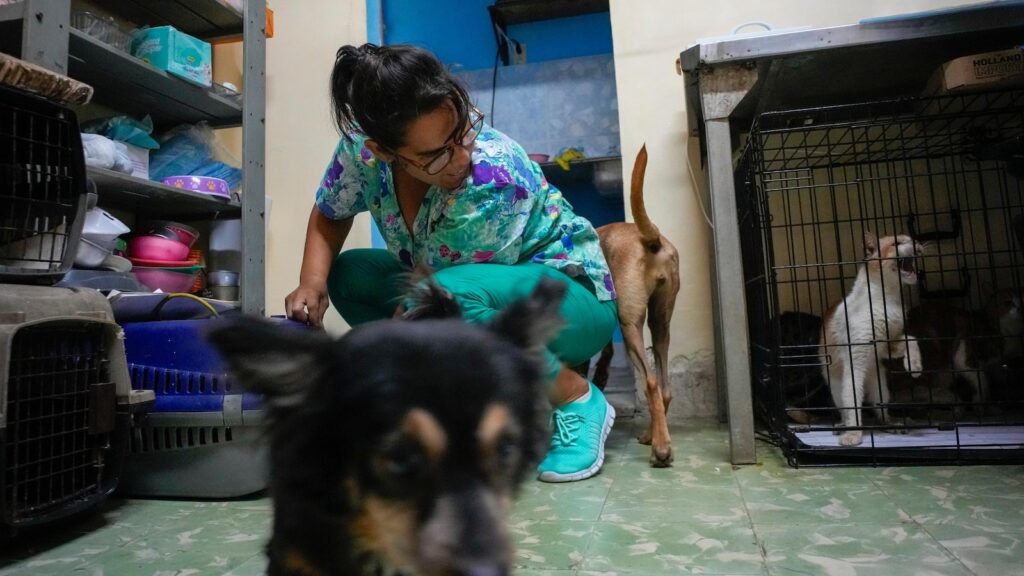HAVANA — Barto, Pepa and Mami were among the lucky ones.
After being abandoned by their owners who left Cuba, or simply unable to care for them, the dogs were rescued by animal rights activists on the island, fed, neutered and found new homes.
Many others were not so lucky and remained on the streets.
There are no official figures or estimates for the number of pets left behind by their owners when they leave the island, but the number of abandoned dogs and cats has skyrocketed in the past two years as record numbers of Cubans emigrate. Animal activists say there are.
“We get calls from people asking us to take care of their pets because they suddenly relocate and they don’t know what to do,” said Elizabeth Mead, founder of animal shelter Adoptions for Love. spoke. Havana.
The shelter found homes for about 300 rescued pets last year, but many were returned or simply lost because their new owners also decided to relocate. “It’s not always a happy ending” for these animals, Mead said.
Between October 2021 and September 2024, U.S. authorities reported more than 600,000 encounters with Cubans, a significant number for an island of about 10 million people. In addition to this, there are thousands of people who choose to emigrate to Spain and other Latin American countries.
For many Cubans, bringing their pets with them is not an option.
Transporting animals from Havana to Miami through specialized agencies can cost up to $1,200, including medical exams and airfare, and starting in September, pet owners will have to comply with legal obligations to quarantine. I now have to pay an additional $1,300.
For those who remain in Cuba, daily life is not easy. Cuba’s gross domestic product fell by 2% in 2023, resulting in rampant inflation and food and fuel shortages.
For most Cubans, caring for pets on the island is prohibitive. Average monthly income in the state sector, the largest employer, is about $21, but a 20kg bag of imported dog food can cost up to $70, and a veterinary visit can cost the equivalent of $10.
The increase in the number of abandoned pets in Cuba has been primarily countered by animal activism. This phenomenon began to take shape in 2018, following the mass adoption of the internet and social media helping to coordinate behavior.
Animal rights activists scored a victory in 2021 when the government passed the long-awaited Animal Welfare Act, which aims to prevent abuse and raise awareness about the need to protect animals. The law also punishes animal abuse, including aerial combat, and the sacrifice of animals for religious purposes, but activists say that is not enough.
“Abandonment is the worst form of animal abuse,” says the dog trainer and proud owner of Coffy, the rescue dog who went viral for riding around Havana on the back of Valdez’s motorcycle wearing goggles and a seatbelt. said Leandro Valdez.
“With the increase in immigration, more pets are being abandoned,” Valdez said, pointing to a “loss of values” due to Cuba’s worsening economic crisis.
____
Follow AP’s coverage of Latin America and the Caribbean at https://apnews.com/hub/latin-america.

